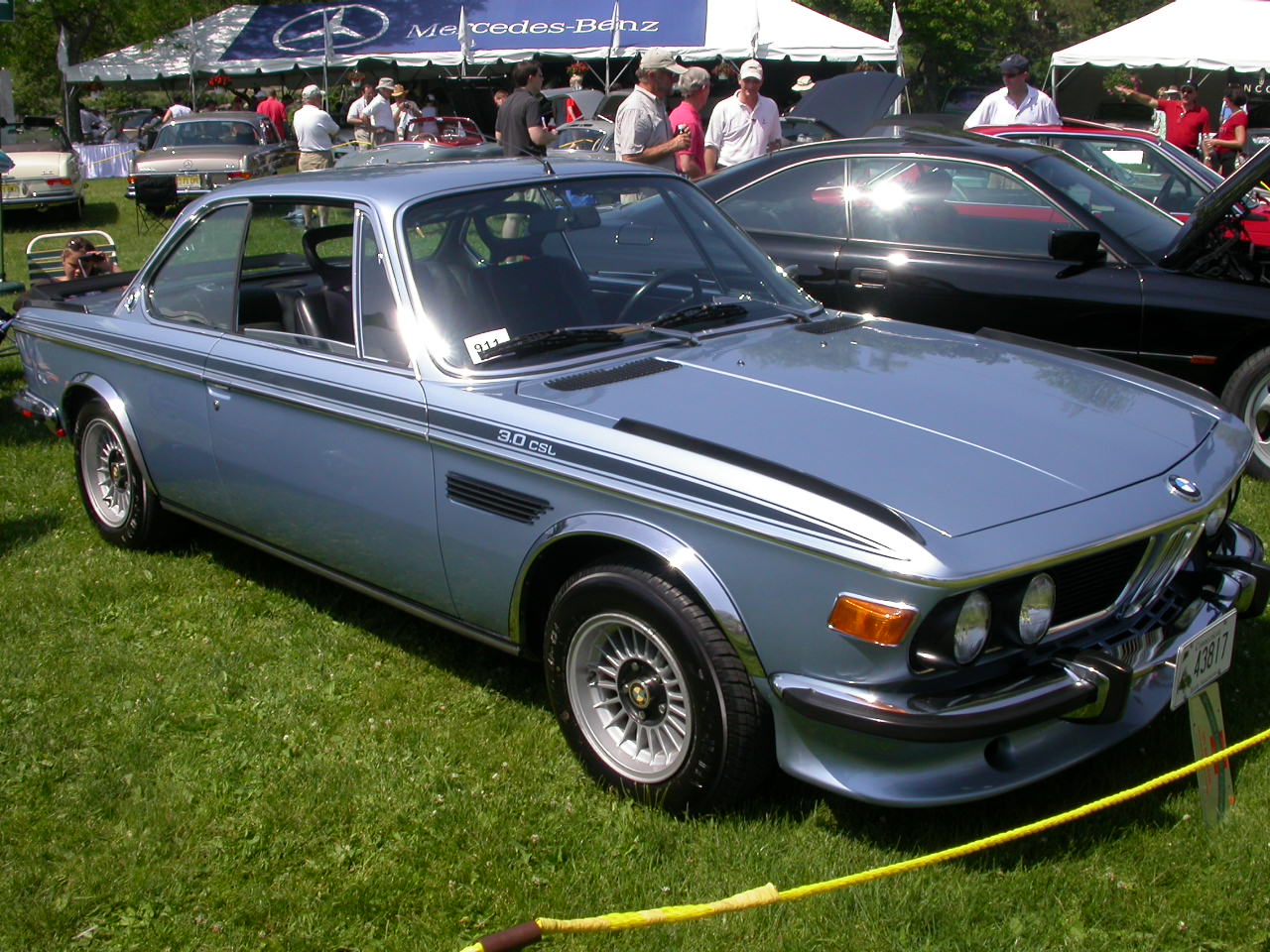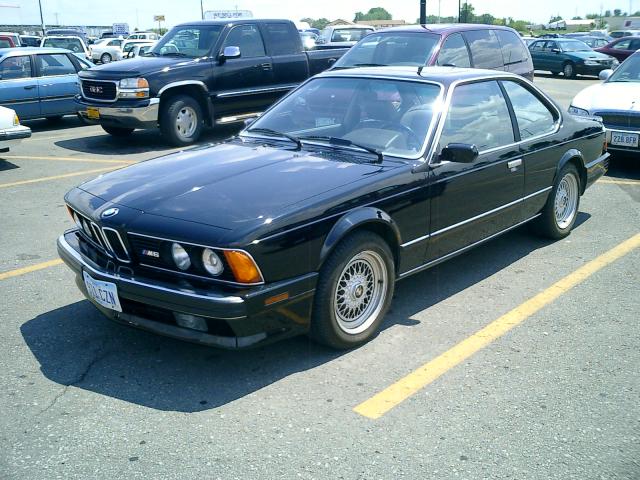
Posted on 11/27/2009 8:18:12 AM PST by thackney
BMW's EfficientDynamics Vision concept car combines the best of all worlds with incredible fuel efficiency, breaktaking performance, and sensational looks. It's powered by a three-cylinder turbo-diesel engine, lithium polymer batteries, and electric motors front and rear. The BMW Vision gets a U.S. unveiling next week at the Los Angeles Auto Show, Dec. 4-13. The only bad news: The BMW Vision is more vision than production-ready concept car. What you'd most likely see on sale would be the key components such as the drivetrain and battery technology transplanted to a more mainstream body.
On a stopover from Europe en route to L.A., BMW held a series of press briefings at its Chestnut Ridge, N.J., U.S. headquarters. According to BMW, the goal was to create a car that would be as quick as BMW's V8 M3, yet tread lightly in terms of environmental impact. Here's how the BMW Vision has the potential to win the hearts and minds of hot-rodders, environmentalists, and techies alike:
Total output from the engine and electric motors is 356hp, and peak torque is 590 foot-pounds (a lot). Acceleration to 100 kph (62 mph) takes just 4.8 seconds and speed tops out at 155 mph. Average fuel consumption is 62.6 mpg or 3.76 liters/100 km in European figures. The fuel economy translates to CO2 emissions of 99 grams per kilometer; getting below 100 is the holy grail by EU standards.
The Vision has a range of 431 miles, BMW says: 31 miles in all-electric mode, about the same as the Chevrolet Volt, plus 400 miles from the 6.6 gallon fuel tank. BMW hasn't yet tried to play the U.S.-automaker mpg numbers game, saying that since most trips are less than 30 miles, and since big powerplant generation is more efficient than using a combustion engine, the effective mileage is up around 200 mpg. What is clear is that electric motors are extremely efficient, as are big power plants, so the effective cost of energy is less than half that of diesel or gasoline fuel.
The three-cylinder, 1.5-liter engine alone produces 163 hp. BMW says the output of 109 hp per liter is the most power produced by a diesel engine. It's small enough to fit ahead of the rear axle for better weigh distribution. Power travels to the rear wheels via a six-speed double-clutch transmission.
One electric motor, in back, sits between the diesel engine and transmission and produces 33 hp (51 hp peak). It can run on its own, without the combustion engine, making the Vision what's considered an active hybrid, as opposed to a mild hybrid where the combustion engine always powers the car. The second motor powers the front axle; it produces 80 hp (continuous), 112 hp (30-second bursts), or 139 hp (10-second bursts). The two motors also act as brakes and regenerate power into the lithium polymer battery pack that runs in a tunnel along the floor of the car. Fuel for the diesel engine is in the rear of the tunnel (separate compartment; it doesn't just slosh around the batteries).
The battery pack has enough juice to bring anyone back from cardiac arrest (or cause it): 98 lithium-polymer cells deliver 30 amp/hours at 3.7 volts, or 111 watt-hours. So each cell is about equal to two laptop batteries. For periods of up to 30 seconds, each cell develops 1,200 amps. Plug the Vision into a standard (in Europe) 220-volt, 16-amp circuit, and the car fully recharges in 2.5 hours. Uses 380 volts and 32 amps and you're back on the road in 44 minutes. Conversely, you'd be looking at overnight plugged into 120 volt U.S. power.
I don’t believe diesels are more efficient. Diesel fuel has more BTUs per gallon than gasole and therefore more miles per gallon. It makes use of a more powerful fuel.
Where does all of this fit into the laws of thermodynamics or they simply bypassed that nasty little bit of reality?
Nice. Would definitely drive that.
Typically bigger does mean higher efficiencies because of required auxiliaries. But big powerplants usually involve combustion.
Becaureful not to expect real knowledge from journalism today.

I know things change rapidly and since I was in school there are a host of new Sciences now That said,When someone tells me they can achieve greater efficiency with a engine driven generator powering a motor, than I can with say a simple Chain and sprocket from the engine. Bells go off and the BS flag flies.
and good luck going over a speed bump.
Thanks for the feedback, I'm not really much of a car guy, so I don't keep up on these things. But I do know about performance in steam power stations, hence my desire for normalized performance measures.
Modern cars all look like bars of soap on wheels to me.




I had a 2002, a 3.0CS (not CSL) and a series 1 530i. All great cars.
That’s a good idea. You’d still need city/highway because the mass of the car has little to do with highway mileage.
OTOH, most people wouldn’t be able to understand the measurement.
Gasoline engines are typically only 25% efficient while diesel engines can convert over 30% of the fuel energy into mechanical energy. The common margin is 40% more MPG for an efficient turbo diesel. Diesel engines are more efficient because they have much higher compression ratios 20:1 for a typical diesel vs. 8-10:1 for a typical gasoline engine. The life of a diesel engine is generally about twice as long as that of a gasoline engine, due to the increased strength of parts used, also because diesel fuel has better lubrication properties than gasoline. Another reason the diesel cycle is more efficient is because there is no ignition system to energize. As for the higher price of diesel fuel, that is due simply to a higher tax structure. Diesel fuel actually costs less to produce because it is refined less than gasoline. Now do you believe?
Ah, the classics...
Can you link to an example of a vehicle with a gasoline and a diesel engine option with the diesel getting 40% more mpg?
I believe you are overstating the difference.
And translates to what in English.
As an aside... I'm leary of turbos. I like to keep a good car for many years and it seems to me that turbos can be troublesome, esp. seals.
Now hydraulics, on the other hand . . .
We did a study and a simple Bicycle chain won hands down for power transfer.this was a while back!
High Pressure Fuel Pump.
They are defectively designed and will leave you at the side of the road when they decide to crap out. Not unusual to get it replaced three or more times. Specifically on the 135 and 335.
You're right.
However, what I had in mind was a Honda Civic with about 20k miles on it. It would get 35+ mpg and be a high reliability car. I would not at this time pay the up front extra to get a hybrid. Battery maintenence issues, other unknowns makes it to me a very iffy investment.
Disclaimer: Opinions posted on Free Republic are those of the individual posters and do not necessarily represent the opinion of Free Republic or its management. All materials posted herein are protected by copyright law and the exemption for fair use of copyrighted works.